Water is widely recognized as a universal solvent because it dissolves and absorbs molecules of various substances. Total dissolved solids (TDS) is the total amount of particulate matter dissolved in a given volume of water. This particulate matter can be organic or inorganic. By knowing the TDS level of water and the total dissolved solids present, we can assess the overall water quality.
Tds In The Water
What is tds in water?
TDS stands for Total Dissolved Solids is a water quality indicator that measures the total amount of solids dissolved in water. These solids can be minerals, salts, organics, etc., and are present in the water in the form of molecules, ions, or tiny particles. TDS is usually expressed in milligrams per liter (mg/L) or in other similar units of concentration, and can also be estimated from conductivity measurements.
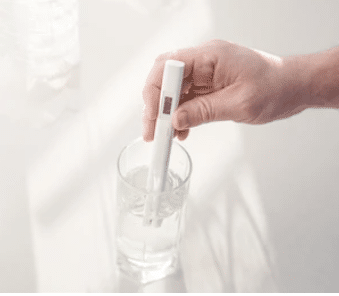
The higher the TDS value, the more dissolved material is in the water. Water with a high TDS value may affect the taste, odor, and overall quality of the water. In some cases, water with a high TDS value may require further treatment to ensure that it is suitable for a particular use, such as drinking water or industrial water.
Sources Of Total Dissolved Solids
- Mineral Dissolution: Minerals in water (e.g. calcium, magnesium, sodium, potassium) can dissolve in water and contribute to the TDS value.
- Salts: Salts in water (e.g. chlorine, sulfates, nitrates, etc.) can dissolve in water and increase the TDS value.
- Acids and alkalis: The dissolution products of acids and alkalis can also increase the TDS value of water.
- Organic matter: Organic matter (e.g. humic acid, organic acid) dissolves in water and also contributes to the TDS value.
- Suspended particles: Tiny solid particles, such as suspended solids and colloidal particles, can also contribute to the TDS value.
- Human activities: Human activities, such as industrial discharges, agricultural fertilizer use, and urban drainage, may introduce a variety of dissolved substances that can increase the TDS value of water.
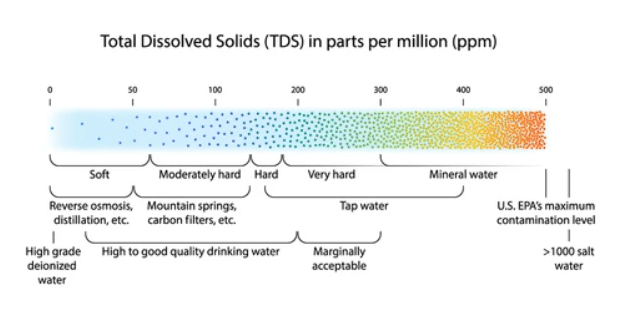
Why are water TDS levels important?
The level of total dissolved solids in water is important because it provides important information about water quality and water suitability.
- Water suitability: TDS levels can affect the suitability of water for drinking, agricultural, industrial and other uses. Higher TDS water may have an effect on the taste, odor, and appearance of drinking water and may negatively affect some industrial processes and crop growth.
- Taste and texture of water: Higher TDS water may cause the water to taste saltier and leave a slippery sensation in the mouth. This may affect the acceptability of the water.
- Water cleanliness: Higher TDS water may contain more dissolved substances, including salts, minerals and organic matter. These substances may reduce the cleanliness of the water and affect its clarity and quality.
- Environmental impact: High TDS water may have a negative impact on the environment. When high TDS water is released into the environment, it may affect the survival and growth of aquatic organisms, as well as the quality of soil and water quality.
- Water treatment processes: In water treatment processes, changes in TDS levels can affect how the water is treated. High TDS water may require more sophisticated treatment methods to remove dissolved substances from it.
- Industrial and Agricultural Uses: Certain industrial processes require low TDS water to avoid negative effects on equipment and products. Similarly, in agriculture, proper TDS levels can affect crop growth and yield.
TDS Levels In Water
| Water Quality Parameters | Realm |
| Soluble Salts | Depends on the specific ion type |
| Hardness | 0 – 500 mg/L |
| Sulfides | 0 – 100 mg/L |
| Sulfate | 0 – 250 mg/L |
| Magnesium | 10 – 150 mg/L |
| Calcium | 10 – 150 mg/L |
| Sodium | 20 – 500 mg/L |
| Chloride | 0 – 250 mg/L |
| Nitrate | 0 – 50 mg/L |
| Hydrogen sulfate | 0 – 50 mg/L |
| Fluoride | 0 – 1.5 mg/L |
| Phosphates | 0 – 1 mg/L |
| Iron | 0 – 0.3 mg/L |
| Potassium | 0 – 200 mg/L |
How is TDS measured?
TDS is the total amount of all dissolved solids in water, including inorganic ions, organics, and minerals. The method of measuring TDS usually involves measuring the conductivity of the water and converting it to a TDS concentration.
- Conductivity meter: Measures the conductivity of water and then converts the conductivity value to TDS concentration according to a specific calibration curve. Commonly used instruments include conductivity meters, EC meter and multi-parameter water quality analyzers. A10 EC Electrical Conductivity Meter is suitable for monitoring tds concentrations in water.
- Intelligent Sensors: Modern water quality sensors and analyzers usually integrate TDS measurement, measuring conductivity and automatically calculating TDS concentration through advanced sensing technology.
- TDS Meter: It is an instrument specially designed to measure the TDS (Total Dissolved Solids) content in water, and directly measures the dissolved solids content in water.
- Evaporation method: A certain amount of water is evaporated and then the mass of the residue is measured and the TDS concentration is calculated based on the mass difference. This method is usually used in a laboratory setting.
- Optical method: Uses infrared radiation or laser technology to measure the absorption or scattering of specific wavelengths of light by dissolved substances in water to estimate TDS concentration.\
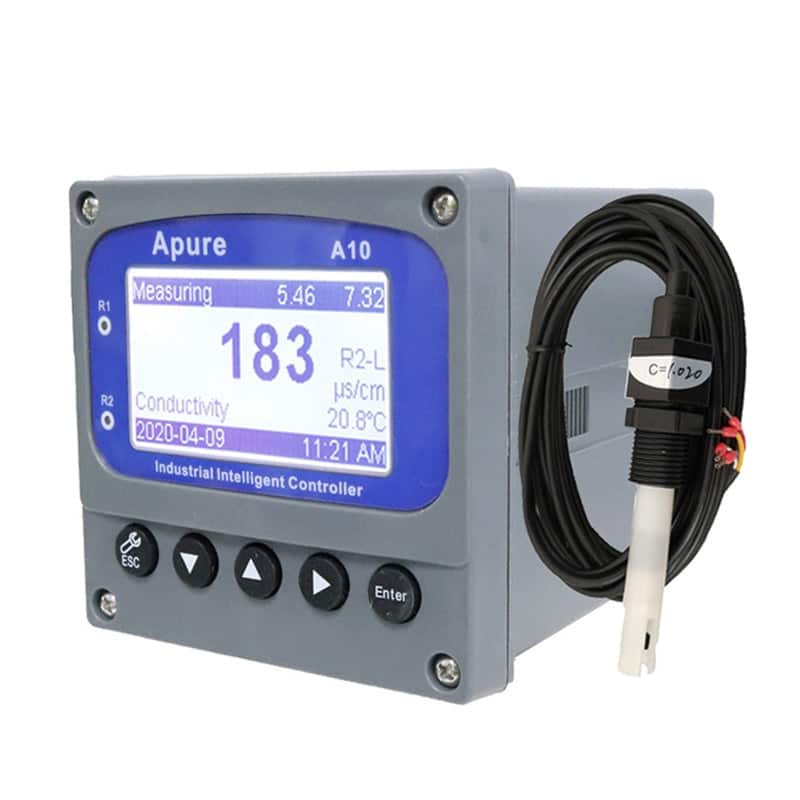
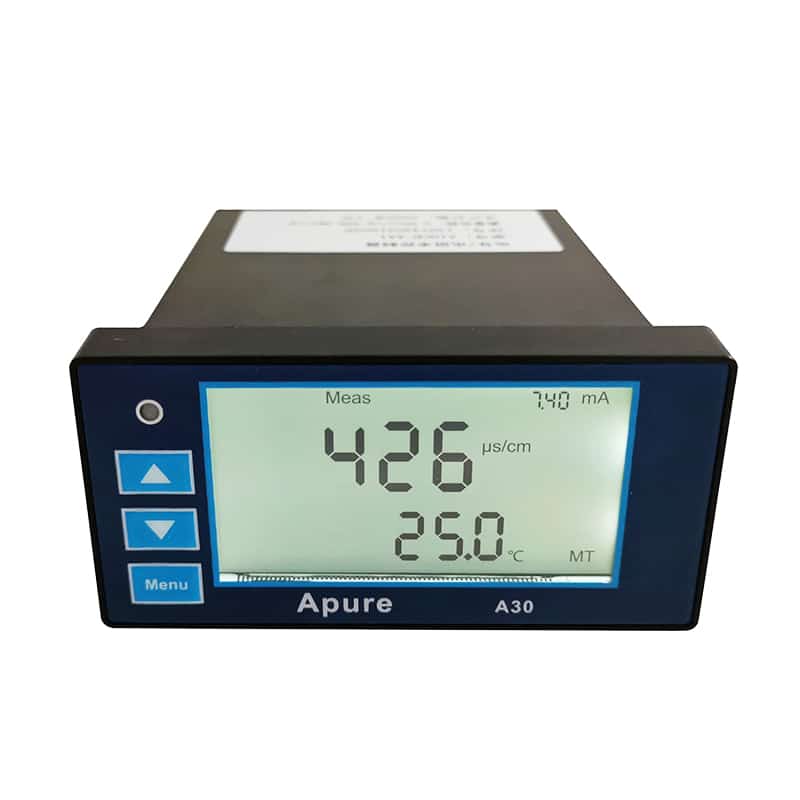
Magnetic flow meter: Magnetic flow meter is suitable for dilution or concentration control tds when it is suitable for dilution or concentration control for liquids with good electrical conductivity, which can provide stable flow measurement results. By adjusting the flow rate, the desired dilution or concentration effect can be achieved. AYT flowmeter with fast response and elimination of output noise to meet the needs of most occasions.
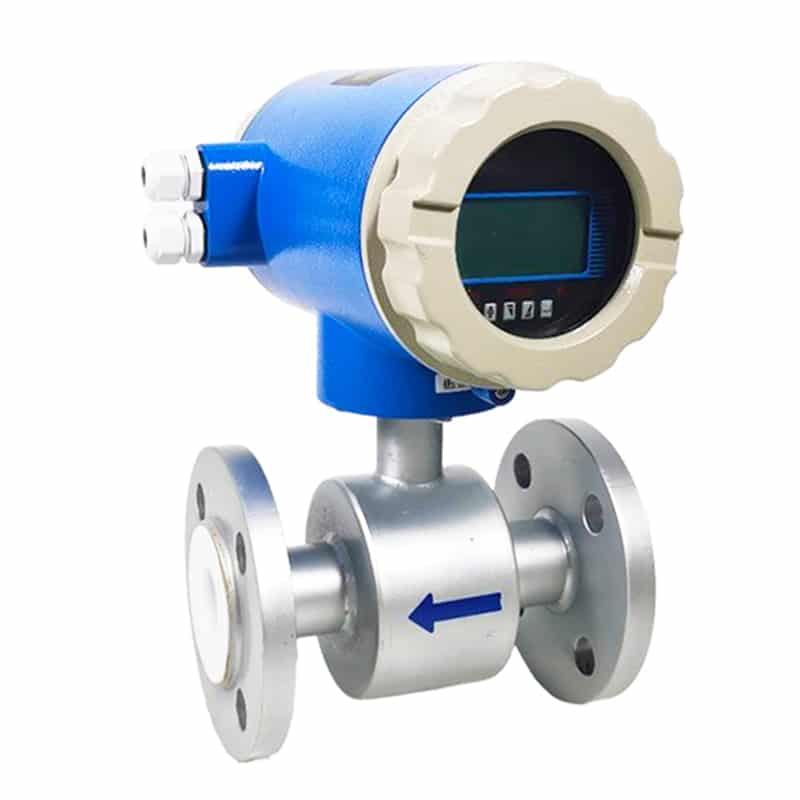
Impact Of High TDS On Water
- Taste and odor: High TDS water may cause the taste and odor of the water to become unacceptable, possibly due to the high salt and mineral content of the water.
- Skin and hair problems: Bathing and shampooing with high TDS water may result in dry, itchy skin and coarse hair.
- Scale and deposits: Minerals in high TDS water may form scale and deposits in pipes, equipment and appliances, reducing their performance and causing blockages.
- Impact on agriculture: High TDS water used for irrigation can lead to a buildup of minerals in the soil, which can affect plant growth and health.
- Drinking safety: In some cases, the dissolved salts and mineral content of high TDS water may have an impact on human health. Drinking too much high TDS water may lead to health problems.
It is important to know and monitor TDS levels in water, especially for drinking water and water for specific uses. Depending on the TDS concentration, appropriate water treatment measures may be required to ensure the quality and suitability of the water.
How to reduce TDS in water?
- Reverse osmosis: Reverse osmosis is a highly efficient water treatment technology that removes dissolved solids and salts from water by filtration through a semi-permeable membrane.
- Ionization Exchange: Ionization exchange is the removal of ions, including dissolved salts, from water by means of an exchange resin.
- Evaporation Condensation: Evaporation condensation is a process in which water is evaporated and then condensed back into a liquid state. This process removes dissolved salts from the water, thereby reducing TDS.
- Mixing: Mixing high TDS water with low TDS water reduces the overall TDS in the water.
- Ion Exchange Resins: The use of specific ion exchange resins can selectively remove certain ions from the water, thereby reducing TDS.
- Distillation: Distillation is a process in which water is evaporated and then condensed back into a liquid. This effectively removes salts and other dissolved substances from the water.
- Reducing the use of salt water: The use of high TDS water can be minimized to reduce the overall TDS concentration.
Summary
By knowing the TDS level of water and the total dissolved solids present, we can assess the overall water quality. The Apure brand is a company committed to innovation and quality, specializing in advanced water treatment solutions. As one of the industry leaders, Apure has extensive experience and expertise in water treatment and continues to push the boundaries of technology and process innovation to meet changing customer needs. We offer high-quality flow meters, level measurement, pressure measurement, temperature measurement and ozone generators. We are committed to helping you achieve accurate and reliable water quality monitoring, so please feel free to contact us!
